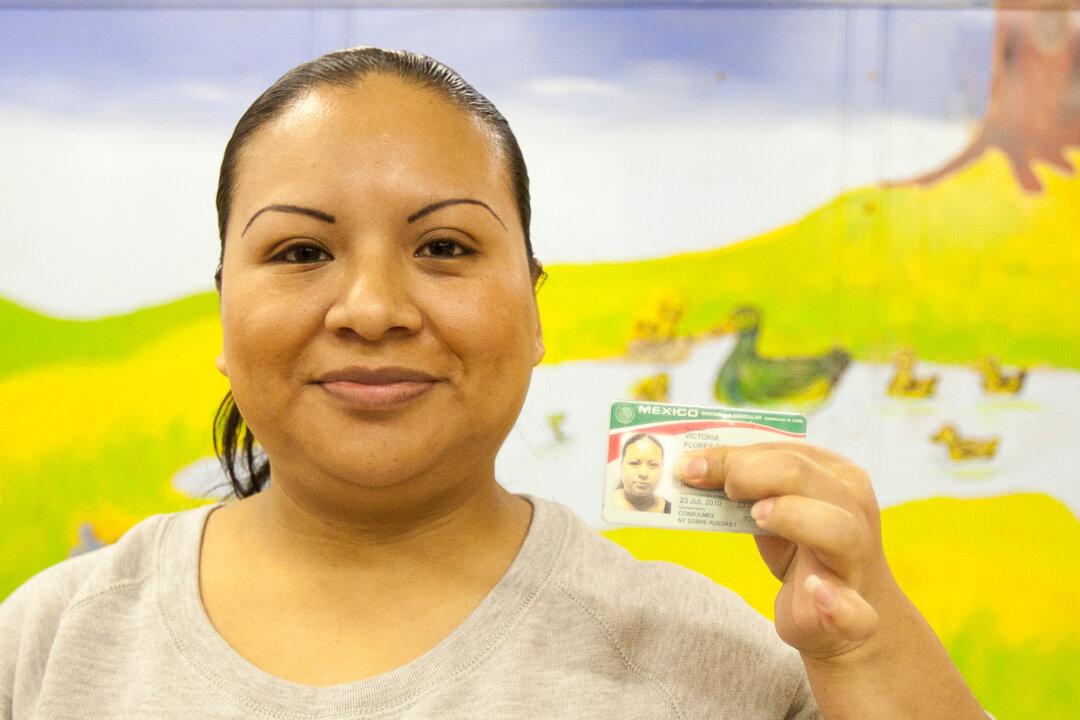NEW YORK—Victoria is one nearly half a million undocumented immigrants in New York City. She arrived in the United States when she was 6, went to school here, has a husband and a child here.
And now she finally has her first photo ID. Still far from being a citizen, Victoria, who did not provide a last name for this article, can now visit her child at school or set up a bank account.
In his Feb. 10 State of the City address, Mayor de Blasio laid out a plan to offer municipal ID cards to any New York City resident by the end of this year, regardless of their immigration status. But he has provided no details about the initiative yet.
But a “critical stepping stone” to the municipal ID program is already available, according to Steven Choi, executive director of the New York Immigration Coalition (NYIC), a nonprofit, which educates immigrants on their options and advocates for immigration reform.
Since 2011 the NYIC has organized 22 events, where undocumented immigrants could learn how to fill out taxes, open a bank account, and not get scammed by fake lawyers.
And that is where Victoria got her consular ID.
The consular ID is a photo identification card issued by a government for its citizens living in foreign countries. It is popular mainly with South American countries and issued by their consulates. It has no effect on the legal or illegal status of an immigrant.
Almost 11,000 people received their consular IDs at the NYIC events, according to Choi. The events were held in public school buildings and were funded by City Council. Thanks to partnerships with a list of foreign consulates, participants could apply for the consular ID on the spot.
The mayor hasn’t disclosed any information on what would be required to get a municipal ID. But according to Choi, having a consular ID is probably going to be sufficient.
There was also no word on what services the municipal ID would allow its holder to access. Choi predicted it may include city services such as access to libraries and parks, in addition to services requiring any photo ID, such as setting up a bank account or visiting a public school.
Usually, a passport or other national ID and a birth certificate are necessary for a consular ID application.
“A lot of it is going to depend on how the city is going to create its municipal ID program,” Choi said.
Consular IDs exploded in popularity mainly after September 11, 2001, according to a 2003 report by the Migration Policy Institute. Undocumented immigrants felt anxiety over not having an ID due to increased security measures following the terrorist attacks.





